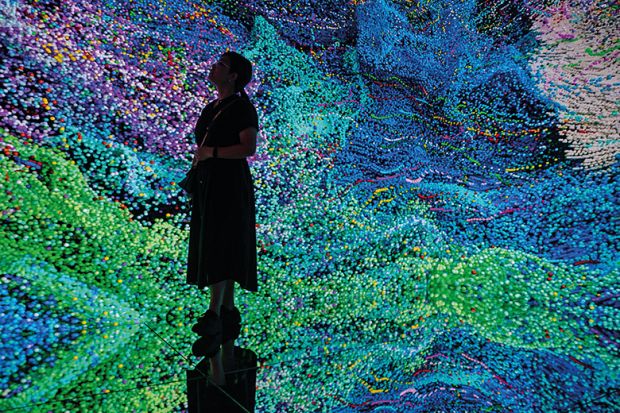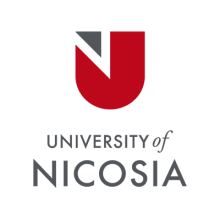With the endorsement of Mark Zuckerberg, the status of the metaverse as the future of the internet seems assured.
It has not taken the higher education sector long to jump on the bandwagon, with what is thought to be the first degree focusing on the development of digital worlds using virtual and augmented reality set to launch in 2022.
But it is not an institution in Silicon Valley, Cambridge or Shenzhen that is making the running – instead, it is the University of Nicosia (UNIC) in Cyprus, which will launch a master’s in metaverse systems in September.
Combining computer science, architecture, art, economics and sociology, the degree promises an interdisciplinary programme for future “creators, developers, architects, social scientists, financial professionals and policymakers”.
“The metaverse is made up of whole virtual societies with virtual economies and rights of governance, and we’re going to help people study them to prepare them to be active participants in the design,” said Antonis Polemitis, UNIC’s chief executive.
“The metaverse is going to reflect the whole of human society, in digital form.”
UNIC’s status as a technological pioneer is not as surprising as it might first sound. In 2013, the private institution was the first university in the world to offer a degree in blockchain and cryptocurrencies. Other universities have followed suit, and since 2017 all UNIC diplomas have been published on the Bitcoin blockchain, allowing online verification of the qualifications.
“There’s a line from what we started doing in 2013 that runs directly towards what we are doing now. These are not independent things; one is a continuation of the other,” Mr Polemitis said.
“We were, by a couple of years, the first university in the world to recognise cryptocurrency and blockchain as a broad field of academic study by launching a master’s degree in the area. This was at a time when Bitcoin was considered by many to be little more than a Ponzi scheme for people to buy their drugs. This was not the case; it was actually a significant breakthrough in distributed systems and a fundamental opportunity to [engineer] societal systems in a decentralised manner.”
Despite mainstream scepticism and bafflement, many technology watchers have taken Mr Zuckerberg’s renaming of Facebook’s holding company as Meta and the launch of its open virtual world app as signs that the metaverse represents a new group of technologies that look set to have a profound effect on people’s relationship with digital spaces and communities.
The metaverse came “with hype”, but the time was right for it, said Rabindra Ratan, as associate professor in the department of media and information at Michigan State University.
“Facebook has been moving in this direction, as many other companies have, for quite some time. It’s not hype in the sense that this is a natural step in the evolution of computing technology,” Dr Ratan said.
“That said, we are currently at an inflection point, so there is the potential for fervent excitement around this which could [turn into a] bubble in some ways, but the infrastructure is there to support at least a kind of rudimentary metaverse.
“In the same way as early in the Web, organisations and non-profit organisations, like the World Wide Web Consortium, created standards for interoperability of websites. Now we see these companies and organisations working towards standards for interoperability of virtual worlds, which is essentially what the metaverse is comprised of.
“So I think it’s here, and it’s actually very forward-looking of the University of Nicosia to launch a study programme dedicated to it,” Dr Ratan said.
A broader UNIC Open Metaverse Initiative will concentrate on four areas: academic and professional training programmes; research and policy; innovation and entrepreneurialism; and non-fungible tokens (NFTs) – unique blockchain tokens that are often used as a way of selling digital art and other content.
Alongside the master’s, UNIC will offer a 12-week massive open online course (Mooc) focusing on the metaverse from next month, and will launch incubators in partnership with venture capital firms and other parties to support artists and entrepreneurs.
UNIC is also planning the first permanent university gallery for NFTs and will accept them as donations towards student scholarships and research projects.
“NFTs are not going to be a big field; they are going to be a massive field,” Mr Polemitis predicted. “In time, they are going to be at least as important as cryptocurrencies, which, when we started, had a $20 billion (£15.1 billion) market capitalisation. Today, they have reached $2.7 trillion.
“Right now, the developments in open metaverse are happening at the fringe of the technology field, but there is not even a 1 per cent chance that metaverses of various sorts will not emerge this decade.”
Register to continue
Why register?
- Registration is free and only takes a moment
- Once registered, you can read 3 articles a month
- Sign up for our newsletter
Subscribe
Or subscribe for unlimited access to:
- Unlimited access to news, views, insights & reviews
- Digital editions
- Digital access to THE’s university and college rankings analysis
Already registered or a current subscriber? Login






